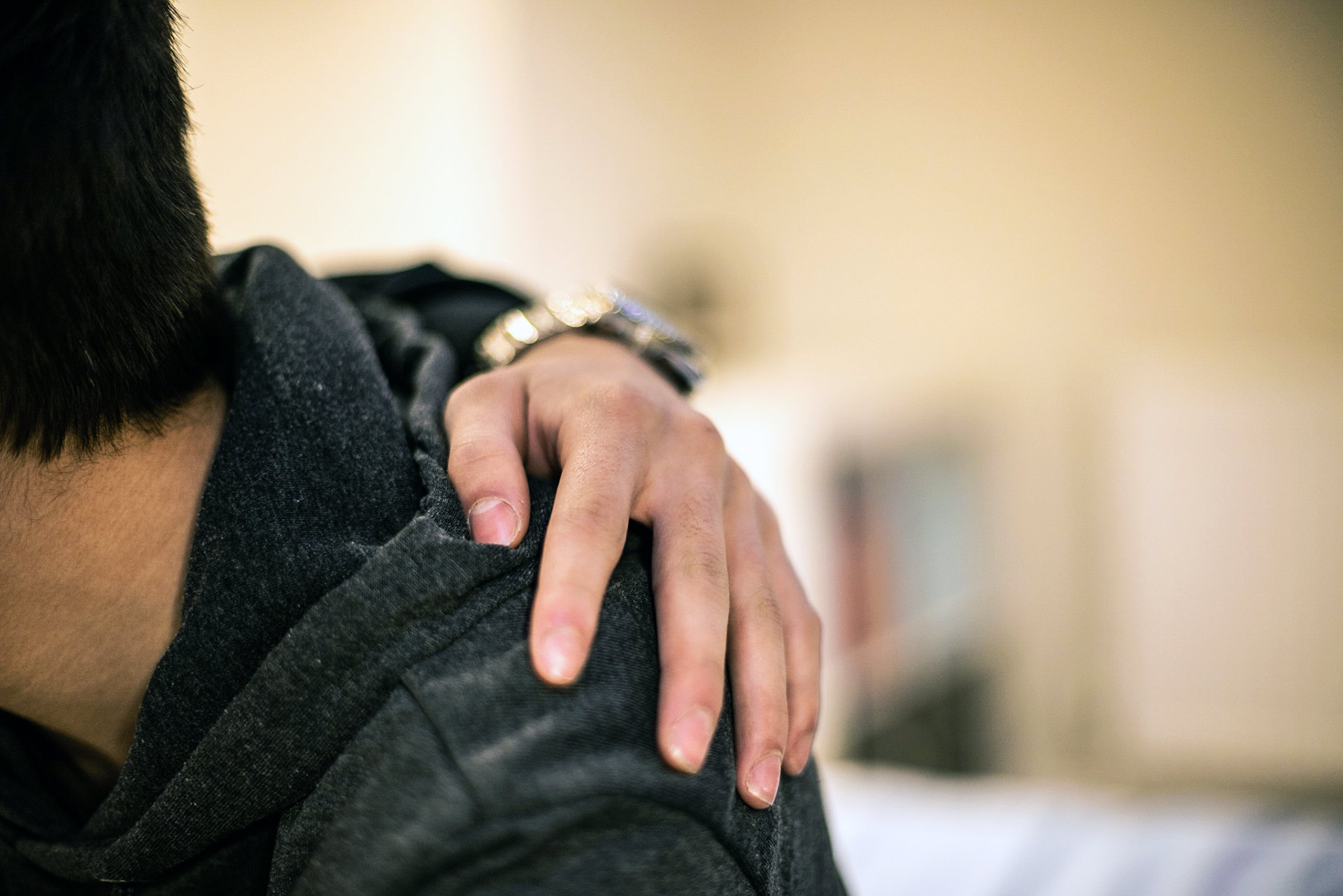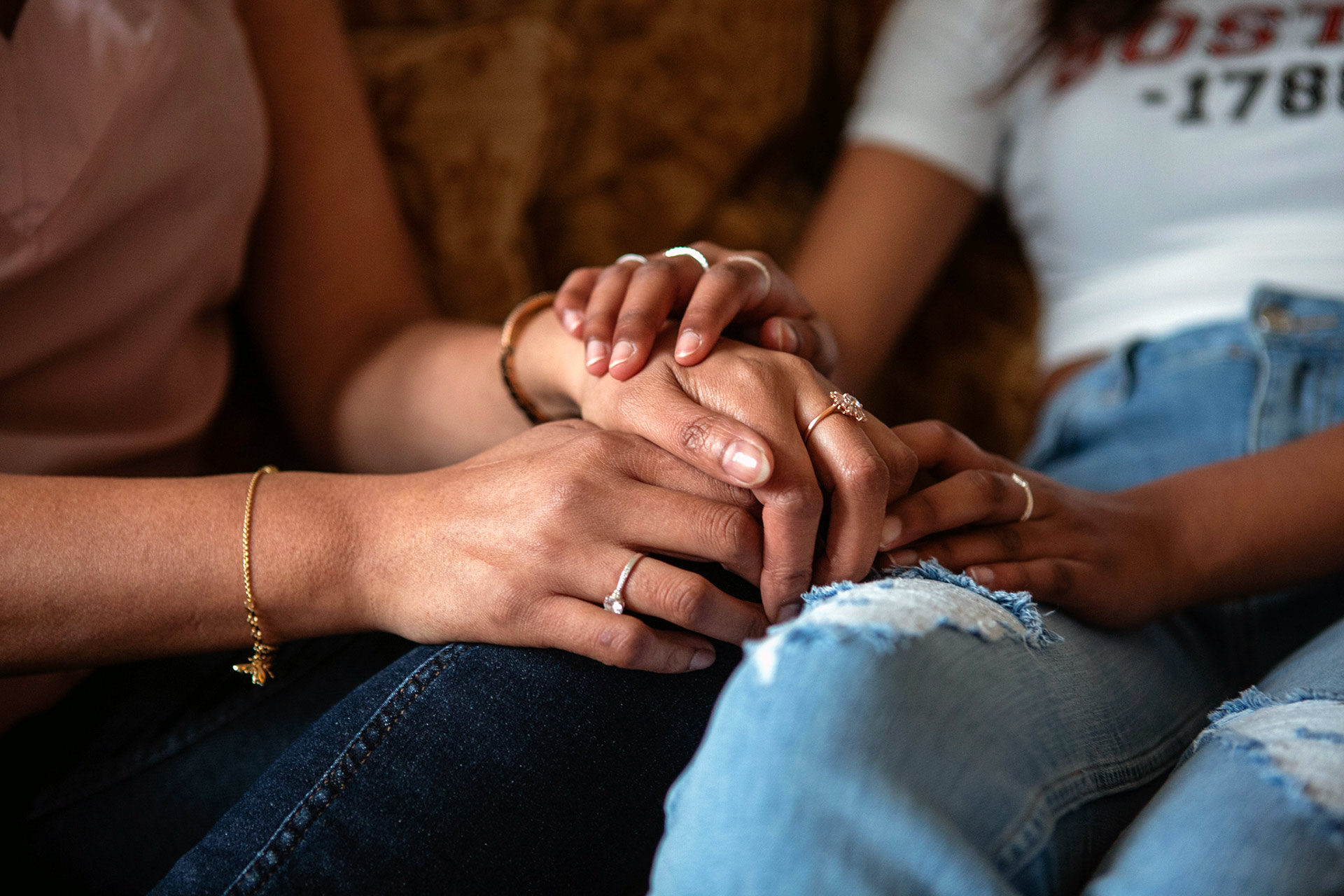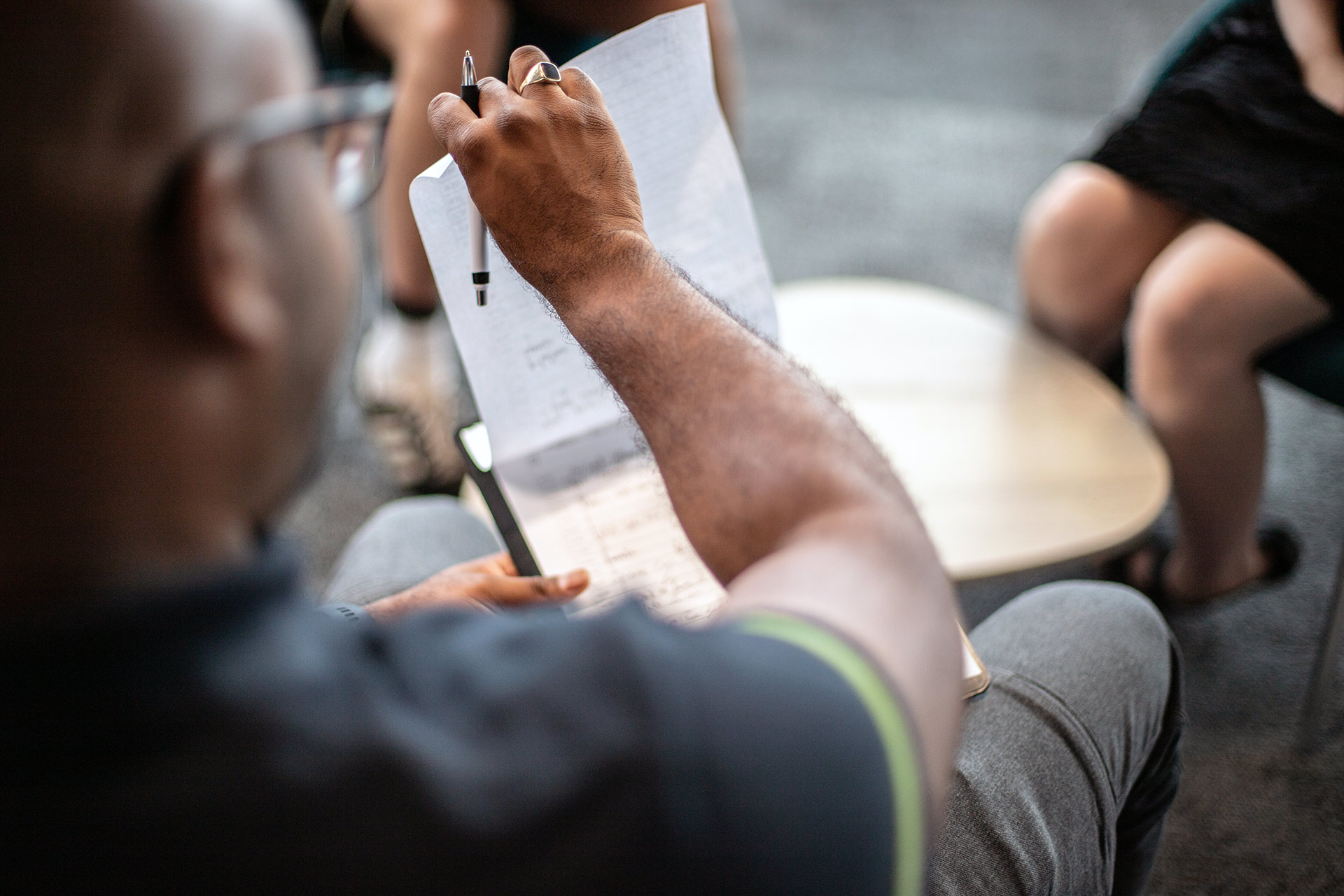How can I help someone who is self-harming?
It takes a lot of strength to support someone who self-harms.
It is important to have enough resources available for you to feel you can continue supporting the person, but also that you look after yourself and recognise what your needs are as the supporter.
The person harming themselves is doing this as a reaction to the distress they are feeling and using it as a coping mechanism. When supporting someone, it is important to not focus just on the self-harm, but on the reasons behind it. Helping someone to identify the triggers for their self-harm is the starting point.
Many people who self-harm can feel very ashamed and lonely. Being supportive of their whole journey, including setbacks, in an open and non-judgemental way will really support their recovery.
16 - 25 Mental health collective
Are you aged 16-25 ?
Are registered with a GP in Southampton (SO14-19) or are a parent/carer of someone who is?
Solent Mind, Youth Options, Re:minds and No Limits have partnered to offer the 16 - 25 Mental Health Collective - a service for young people aged 16-25 with mental health needs, and their parents and carers.
Online support
If you are self-harming, lots of the organisations below are specifically for young people.
- Alumina – provides free online self-harm support for 11–19 years olds
- Childline – you can speak to a counsellor or chat to other young people on their message boards
- The Mix – offers counselling services, a helpline, webchat and community message boards
- Harmless – a passionate organisation who works to address and overcome issues related to selfharm and suicide
- Tellmi – an app that allows you to talk about difficult things with people your age, while hiding your identity. All posts and responses are moderated for safety
- YoungMinds – you can text their crisis messenger service at any time for support
- Calm Harm - A free app providing support and strategies to help you resist or manage the urge to self-harm
- Sane - Provides care and emotional support for people aged 16 and over affected by mental illness, including families and carers
- Kooth - An online mental wellbeing community
- Koala Community – Autistic led support for Autistic and Neurodivergent Individuals and Families
Support for parents/carers
- Nip in the Bud - Self-harm videos and resources for parents and carers.
- Hampshire Parent and Carer Network - A membership organisation for parents and carers of people aged under 25 with additional needs in Hampshire.
- NHS Talking Therapies Hampshire - free, tailored treatments for people with mild to moderate mental health and wellbeing difficulties, using evidence-based therapies like Cognitive Behavioural Therapy (CBT).
- YoungMinds Parents Helpline - free online and telephone advice for parents and carers who are concerned about their child or young person’s mental health.
- Barnardo's Hampshire and IOW Support for Neurodiverse Families - evidence based skills building programmes for parents and carers who have children aged 3-17 who have ADHD or autism
- Home Start Hampshire - support for families of children aged 0-11 struggling with postnatal depression, isolation, physical problems, bereavement and more.
- Family Lives (previously known as Parentline) - a confidential and free* helpline service for families in England and Wales. Provides emotional support, information, advice and guidance on any aspect of parenting and family life.
- Anna Freud - Mental health charity for children and families.
- Family Action - Support via phone, text, email and web chat with FamilyLine.
- Barnardo's parent and carer resources - Services and support for parents and carers.
Here are some examples of open and encouraging statements and questions you can use while talking to someone about self-harm:

I know that you are going through a difficult time right now, I want you to know that I am here for you, and you are not alone.

I can only imagine how difficult this situation is for you and I appreciate that you feel you can talk to me.

Would you like to share what’s on your mind with me?

This must be very challenging for you, what can I do to support you?
Signs to look out for
Although there can be some common signs that someone might be self-harming, everyone is different, but if you notice a big change in behaviour including impulsive actions and self-destructive behaviours, these could be an indicator.
Other things to look out for include, wearing long sleeves, particularly in warm weather, withdrawing from others, blood on bedding or clothing, increasing amounts of cuts or bruises, using lots of disposable razors or unexplained increase in sharp objects appearing and changes in eating habits.

How to help someone look after their self-harm wounds
When someone harms themselves, it is important to look after the wounds to prevent infection.
If someone comes to you with self-harming injuries, first control the bleeding by applying pressure to the wound with a clean tissue. This should stop or slow the bleeding right down, however if the wound is bleeding intensely after a few minutes, visit A&E for medical care.
Once you have minimalised the bleeding, you need to clean the cut with water, or an antiseptic wipe then cover with a plaster to stop any dirt getting into the wound. Make sure to change the plaster every day.
Look out for signs that a wound has become infected, these can include swelling, redness and increased pain in the affected area, pus forming from the wound, a high temperature or generally feeling unwell. If any of these symptoms are being experienced, seek medical help as soon as possible.
What is self-injury?
Self-injury is where an individual purposely hurts themselves in a physical way.
Cutting is most widely known, however self-injury can take many forms including, but not limited to, burning the skin, scratching, pulling hair, and inserting objects into the body.


How to help someone wear their self-harm scars in public
It is a personal choice whether to show scars in public, however it can be extremely daunting for someone to start the process of exposing them.
It’s important to remind them to ease into it in any way that makes them feel comfortable. This can include them wearing short sleeves but covering scars with accessories, showing a trusted friend or other family members first before going out in public, or wearing short sleeves around the house first before wearing them outside.
Reminders for someone struggling with their scars.
Scars are not something to be ashamed of, if someone isn’t ready to show them in public, that is completely fine, but if they are ready to try, it is good to remind them that doing this shows how far they have come.
Scars are a part of who they are, and the important thing to work on is how they feel in their own skin and learning to accept the scars.
What not to say to someone with scars
Having questions to someone who self-harms is natural when you want to understand their reasons for doing so,
However, making negative comments such as saying they have ruined their body or telling them how they should or shouldn’t show their scars can have a negative impact on their wellbeing if they feel they are being judged rather than supported.
Relapse
It is common for people who self-harm to relapse, even when they are really trying to reduce or stop this behaviour altogether.
When relapse happens, it is important to be empathetic and listen to their struggles, be encouraging and reassuring. Don’t make them feel guilty or invalidate their progress as recovery is something that takes a lot of time.

